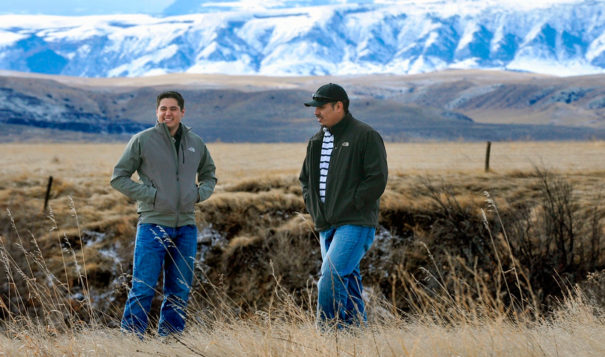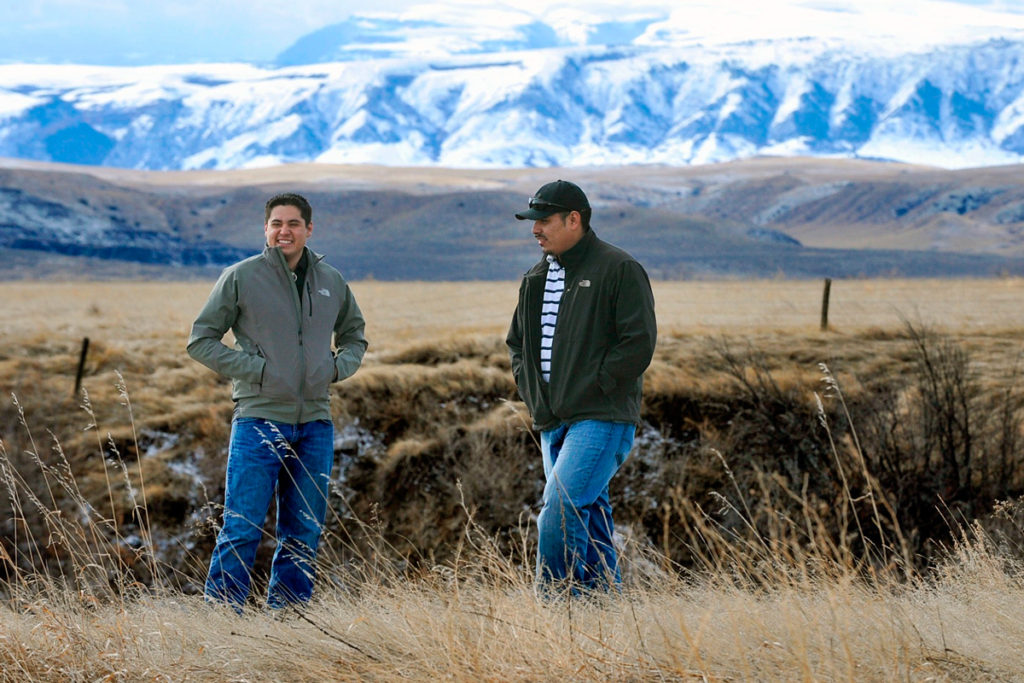News Article Article pages that do not meet specifications for other Trust Project Type of Work labels and also do not fit within the general news category.
Treaty rights prevail in Supreme Court

In a 5-4 vote, the court disagreed that Wyoming’s statehood nullified a Crow Tribe hunting treaty.
In January 2014, Clayvin Herrera, a member of the Crow Tribe and a resident of the Crow Reservation in Montana, shot a bull elk in Wyoming’s Bighorn National Forest. He trudged through three feet of snow and across a state boundary to do so, and it took him eight hours to pack out the meat, which his family ate all winter. Later that year, Wyoming charged him for killing the elk out of season and without a license.
Herrera hunted the elk off-reservation, but he was acting under the protection of the 1868 Treaty Between the United States of America and the Crow Tribe of Indians. According to that treaty, when the Crow ceded 30 million acres of territory to present-day Montana and Wyoming, the tribe retained the “right to hunt on the unoccupied lands of the United States so long as game may be found on” and “peace subsists … on the borders of the hunting districts.”

James Woodcock/The Billings Gazette via AP, File
But Wyoming refused to consider the 1868 Treaty in Herrera’s case. The lower court argued that when Wyoming became a state, the 1868 Treaty expired. The court also didn’t regard the national forest where the elk was killed “unoccupied.” Herrera appealed, but the state appellate court upheld the decision, and Wyoming’s Supreme Court denied review. In other words, Wyoming argued that its own existence trumped the treaty’s legality.
“We disagree,” Justice Sonia Sotomayor wrote in the 5-4 majority opinion, joined by Justices Elena Kagan, Ruth Bader Ginsburg, Stephen Breyer and Neil Gorsuch, a recent Trump pick. “The Crow Tribe’s hunting right survived Wyoming’s statehood, and the lands within Bighorn National Forest did not become categorically ‘occupied’ when set aside as a national reserve.” According to the nation’s highest court, the treaty trumped statehood.
“This day marks a victory for the Apsáalooke and all treaty tribes as our off-reservation hunting rights have been upheld by the Supreme Court of the United States,” Crow Tribal Chairman Alvin Not Afraid Jr. said in a statement. “Our right to hunt in the Bighorn Mountains on the reservation or beyond was important to our ancestors, is important to us today, and will be important to our children and their children. We look forward to seeing the state of Wyoming finally respect our 1868 Treaty rights.”
Herrera’s is far from the first off-reservation hunting rights case to reach the High Court. Two past cases made up the bulk of the attorneys’ arguments: In Ward v. Race Horse, an 1896 case, the Supreme Court ruled that Wyoming’s statehood repealed a Shoshone-Bannock treaty. In Herrera’s case, Wyoming had relied on Race Horse and a similar off-reservation hunting case from 1995, Crow Tribe of Indians v. Repsis. But Herrera’s attorneys argued that a different case from 1999 — Minnesota v. Mille Lacs Band of Chippewa Indians, in which the Supreme Court ruled that treaty rights stood unless Congress “clearly expressed” the intent to end the treaty — applied. That was the argument the Supreme Court agreed with.
Heather Whiteman Runs Him — a Crow tribal member, staff attorney for the Native American Rights Fund and representative of the Crow Tribe in its brief for Herrera’s case — was glad to see a decisive ruling against Race Horse. It felt like a long time coming.
“I grew up hearing stories about hunters outrunning, and sometimes outsmarting, game wardens,” Whiteman Runs Him said. “These are conflicts that have percolated for over a century now.”
The Supreme Court’s decision was the second this year in which Justice Neil Gorsuch, the Court’s only Westerner, joined with the majority opinion to support treaty rights: In March, he voted with the majority affirming the 1855 treaty with the Yakama Nation pre-empting Washington state’s fuel tax.
Now, because the Supreme Court’s decision is limited, Herrera’s case is remanded back to Wyoming courts. There, the state can attempt to regulate tribal hunting on other grounds. Whiteman Runs Him hopes that the Supreme Court’s decision breaks new ground at home. “It would be great to see the state of Wyoming come to the table and talk in meaningful and respectful terms with the tribe about how to move forward,” she said.
The day of the decision, Clayvin Herrera changed his profile picture on Facebook to an image of him holding a crossbow above his head, victoriously. “Thank you to all who supported me and helped along the way,” he wrote in the caption. “There’s a lot of ya ‘n I appreciate everything you have done, are doing, ‘n will do, aho.”
Elena Saavedra Buckley is an editorial fellow at High Country News.
